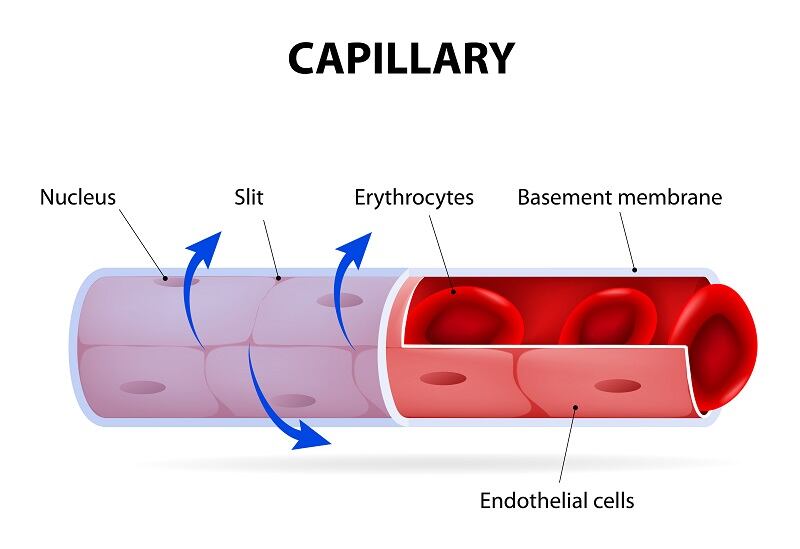Writing in the British Journal of Nutrition, researchers from the SRM University in India called for more research on the “clinical acceptance of potent polyphenols” as well as risk assessments on safety.
The endothelium is the thin inner lining of cells in blood vessels that acts as an interface between the circulating blood and the vessel wall, making it a critical mediator within the vascular system.
Endothelial dysfunction is common in people with diabetes and this is a key contributor to the development of diabetic complications.

Indeed endothelial dysfunction tends to be the first ‘event’ in macrovascular complications such as coronary artery disease, peripheral arterial disease, stroke and microvascular complications like kidney damage (nephropathy), nerve damage (neuropathy) and damage to the retina (retinopathy).
Polyphenols & endothelial dysfunction
Chief mechanisms of endothelial dysfunction include the down-regulation of endothelial nitric oxide synthase levels, variance in expression of the vascular endothelial growth factor (VEGF), endoplasmic reticulum stress, inflammatory pathways and oxidative stress.
The review funded by the Indian Council of Medical Research found overall there was evidence that polyphenols not only alleviate oxidative stress but also act on cellular signalling pathways, which impact these chief dysfunctional mechanisms and thereby prevents vascular complications in diabetes.
Evidence around polyphenol antioxidants and the endothelium has been mounting, with green tea, cocoa, red wine and citrus fruit highlighted as sources.
They found in vitro and in vivo evidence for the benefit of 30 different compounds including alpha-linolenic acid, curcumin, quercetin and resveratrol.
A call to arms
A report from the World Health Organisation (WHO) in April this year said the number of adults living with diabetes globally had almost quadrupled since 1980 to reach 422 million.
With diabetes causing 1.5 million deaths in 2012 alone, the report called for action from all stakeholders on the crisis.
“From the analysis it is clear we need stronger responses not only from different sectors of government, but also from civil society and people with diabetes themselves, and also producers of food and manufacturers of medicines and medical technologies,” WHO’s director-general Dr Margaret Chan said at the time.
“The report reminds us that effectively addressing diabetes does not just happen: it is the result of collective consensus and public investment in interventions that are affordable, cost-effective and based on the best available science.”
Source: British Journal of Nutrition
“Reversibility of endothelial dysfunction in diabetes: role of polyphenols”
Published online ahead of print, doi:10.1017/S0007114516001884
Authors: N. Suganya , E. Bhakkiyalakshmi , D. V. L. Sarada and K. M. Ramkumar
